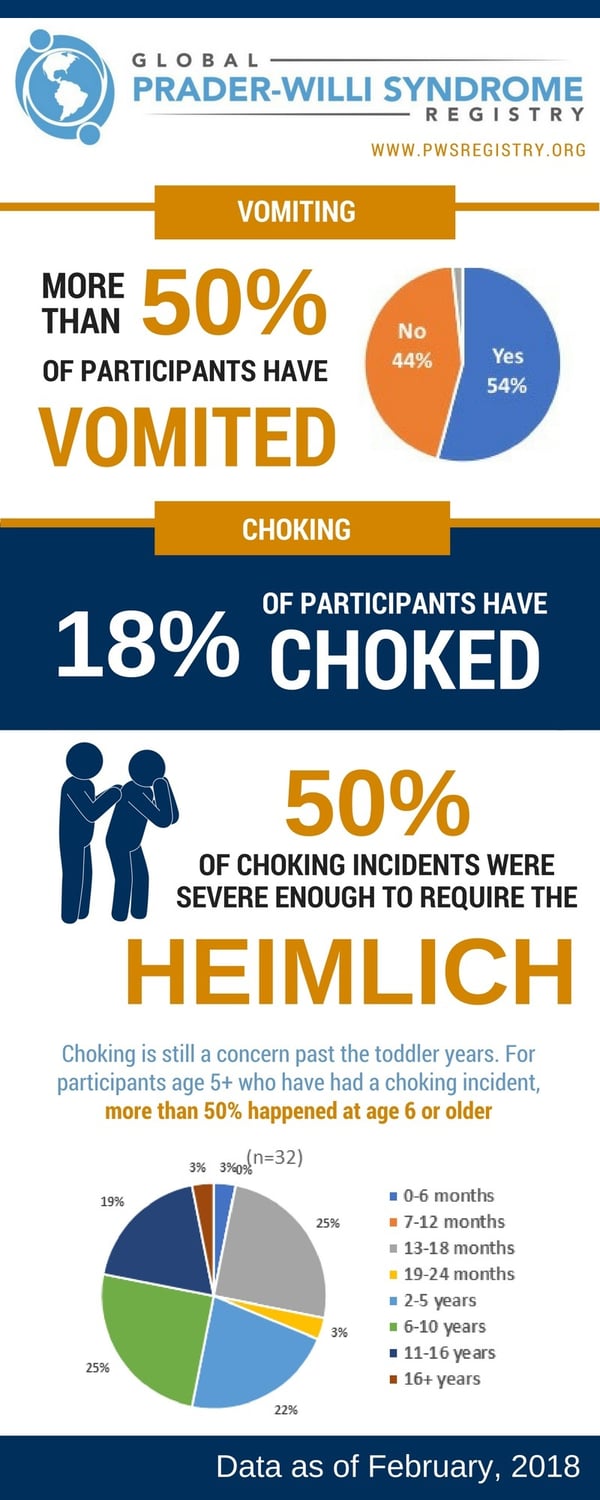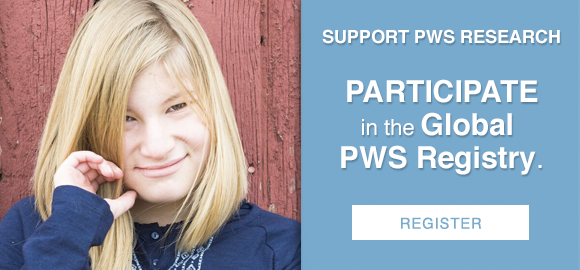The inability to vomit has previously been cited as a characteristic of Prader-Willi syndrome. While there is a reduction in vomiting as compared to neuro-typical peers, 54% of participants in the Global PWS Registry have vomited (n=304) indicating that it is not as rare as often thought. A study by Alexander et al titled Rumination and vomiting in Prader-Willi syndrome (Pubmed 1987) reported in a study of 313 patients, 36% had reported at least one episode of vomiting.
Thanks to research into choking / swallowing funded by PWSA-USA, it is widely recognized that choking is an issue in PWS. A review of registry participants supports PWSA-USA’s post-mortem survey data indicating the risks of choking in the PWS population.
18% of registry participants have had a choking incident. Of these choking incidents, 40% were severe enough to use the Heimlich maneuver. In addition, concerns around choking continue well past the toddler years. When specifically looking at data for participants ages 5 and older who have had a choking incident, 50% of those events happened at ages 6 and older.
It is important for caregivers of individuals with PWS to be familiar with the Heimlich maneuver. Please take a moment to learn more about delivering this life-saving technique.
For guidance on how to enroll in the Global PWS Registry please download the Instruction Guide for Getting Started with the PWS Registry. Already enrolled and want to update your surveys? Download the Guide to Updating Your Surveys.

We've also published infographics from the PWS Global Registry data on developmental milestones in PWS, sleep issues in PWS, use of growth hormone for PWS.








